Lentz: To Kaep It All Off…
On September 3, 2018, Labor Day, at 12:20 pm, Colin Kaepernick tweeted this out to his 2.02 million followers sparking many positive and negative comments and actions:
Wait a second, who in the world is Colin Kaepernick? Kaepernick has been a Nike endorsed athlete since he was drafted by the San Francisco 49ers in 2011. In 2012, he took over the starting quarterback job midseason for, then starting quarterback, Alex Smith, who was injured and led the team to Super Bowl XLVII against the Baltimore Ravens in New Orleans. The 49ers fell 34-31. In the years since, Kaepernick had lost and gained back his starting job on multiple occaisons as the 49ers faded into the abyss losing 33 of 48 games from 2013-2016.
Then despite a 2-14 record, the 2016 49ers were the center of national attention even from their third preseason game on August 26, 2016. This attention has evolved into an even bigger conversation as the years have gone by because throughout the 2016 season Colin Kaepernick would kneel during the national anthem and his reason why eventually inspired much of the rest of the league to follow suit.
Right after the August 26 game, a 21-10 loss to the Green Bay Packers, Kaepernick said in an exclusive NFL Media interview, “I am not going to stand up to show pride in a flag for a country that oppresses black people and people of color.” He continued with, “To me, this is bigger than football and it would be selfish on my part to look the other way. There are bodies in the street and people getting paid leave and getting away with murder.”
In a statement to the general media the very next day, August 28, 2016, Kaepernick clarified his comments with, “This is because I’m seeing things happen to people that don’t have a voice, people that don’t have a platform to talk and have their voices heard, and effect change. I’m in the position where I can do that and I’m going to do that for people that can’t.”
The only problem that lies within this act of peaceful protest is not because of Kaepernick, but because of how it was originally perceived and how it has been presently perceived since. There are people who have been focusing on his method of protest, not his message. His message ideally has been to raise awareness to the unwarranted acts of police brutality against African-Americans and to raise support for veterans. You may have read that last sentence as “he’s protesting the police.” Let me clear that up. No matter what career field you go into, there will always be a right and wrong person for the job. When it comes to something such as being a police officer, it is a life and death matter if the wrong person is hired.
Some may have said, “He could have protested differently instead of disrespecting the flag that people have fought for!” Let’s examine that statement. Was he really protesting the flag of the United States of America? No. Have people in our nation’s military fought and died for that flag? Yes. They fought and died for our freedoms that are often taken for granted. Freedoms such as right of speech, opinion, and peaceful expression. According to a poll from October 8, 2017, of 8,000 veterans from Washington Examiner, 62 percent think that the NFL players have a right to protest during the anthem, 34 percent say they would stop watching the NFL because of this, and 4 percent were undecided.
The conversation would rise and fall in terms of virality until this Labor Day, when the conversation sparked another outrage because of Colin Kaepernick’s tweet. The difference was that this time, the people who disliked Kaepernick for his political views had someone else to dislike as well, but for questionable reasons: Nike.
First broken by ESPN’s Darren Rovell, Nike kept Kaepernick on retainer as a brand endorser despite not being on a team roster and he became “the face of the company’s 30th anniversary of the “Just Do It” campaign,” along with Serena Williams, Shaquem Griffin, Odell Beckham, Jr., and others.
It started with an 80 year-old man named Walt Stack jogging along the Golden Gate Bridge in 1988 San Francisco saying, “I run 17 miles every morning. People ask me how I keep my teeth from chattering in the winter. I leave them in my locker.” Then it cuts to a blank screen with the three most recognizable words in apparel: “Just do it.” This advertisement became the embodying slogan of the one of the world’s most recognizable brands, and continues to motivate through stories and slogans that emphasize work ethic, health, and perseverance.
There are many that were furious Colin Kaepernick was named the face of the 30th anniversary of the ad. The arguments against it say either “He hasn’t sacrificed everything” or “How dare Nike become political.” To say that Kaepernick hasn’t sacrificed everything is a very fair statement, but it truly depends on a measurement of a dream. Being an NFL quarterback was Kaepernick’s dream, and he hasn’t been signed since his infamous 2016 season. Sure, he makes a lot of money, but money isn’t always everything. Sometimes a dream is someone’s everything.
There were images and videos all over social media from individuals who so vehemently disagreed with the company’s marketing decision that they burned, trashed, or cut the Nike logo off of their owned apparel. Nike’s stock even dipped about 2 percent the day after. According to Edison Trends, the entire Labor Day weekend’s online sales went up 31% compared to August’s average day of sales.
From all of this attention, Apex Marketing Group concluded that as of September 6, 2018, Nike accumulated a total of $163,495,762 in publicity value since the advertisement was first posted. Over $65 million was positive exposure, while the negative and neutral exposure each were valued at about $49 million.
People have a right to be upset about anything they want to. People have a right to be in support of whatever they want to. People have a right to protest anything they want to. That doesn’t mean it is always justified, but, nevertheless, it is their right. Whether you agree with the message put forth by Kaepernick or not, the fact that must be understood and respected is this: he sees a problem that has unjustly cost many lives over the years and he is using his position as an athlete to raise awareness to said problem.
Athletic activism is nothing new. Many would say it began in the summer of 1968 in the Mexico City Olympics. During the American national anthem, USA’s Tommie Smith in gold and John Carlos in bronze have their black gloved right hands in a fist raised for the duration of the American national anthem. They are African-American men in Civil Rights era America. Many people perceived this as a “Black Power” salute. Smith later said it was simply a “human rights salute.” It was a quiet action that led to deafening uproar in the United States of America.
NFL, NBA, and some D1 college teams wore t-shirts that read “I can’t breathe,” a few of the last words of Eric Garner, an African American man who was selling unlicensed cigarettes in Staten Island, NY, on July 17, 2014. He resisted arrest, not violently though, and shouted, “Every time you see me you want to arrest me, I’m tired of this, this stops today…I didn’t do nothing…I’m minding my business, officer…” It was at that point that Officer Daniel Pantaleo, put him in a chokehold and soon after he died. He may have been violating the law, but does that warrant an immediate death? Tamir Rice. Freddie Gray. Michael Brown. All tragic and unfortunate examples of unnecessary force from a few police officers that have resulted in deaths. All received similar support from professional athletes from different sports.
Howard Bryant, senior writer at ESPN, had a very interesting interview with Carmelo Anthony. It was titled, “The Truth According to Carmelo Anthony.” Carmelo talked about what happened in his hometown of Baltimore when Freddie Gray was killed in police custody and no officers were indicted:
““The system is broken. It trickles down. It’s the education. You’ve got to be educated to know how to deal with police. The police have to be educated on how to deal with people. The system has to put the right police in the right situations. Like, you can’t put white police in the ‘hood. You just can’t do that. They don’t know how to react. They don’t know how to respond to those different situations. They’ve never been around that…”
He continued with his statement by providing some insight to his personal history in the storied city:
“When I was growing up, we knew police by their first name. We gave them the nicknames. But that’s only because we related. And when the white police came into our neighborhood, the black police said, “Yo, we got this.” That doesn’t happen anymore. You got black police afraid to go into black communities now, and the white police are like, “S***, I’ll come. It’s a job. I’ll go in there and do it.” Not knowing what’s going to happen.”
Kaepernick’s message was based upon these events. Yet, it is still publicized that he “protests the anthem/flag.” If he were to truly protest the anthem and flag, he would be protesting all the rights he is using by protesting. That doesn’t make sense.
It is difficult to dissect some types of activism sometimes. Because people speak different messages with a different meaning hoping for a different solution to different people who interpret and believe different things. When athletes speak out, they want to better their communities, their cities, and their environment. The 1st amendment gives the citizens of the United States a right to freedom of speech. Why not use that to do something positive? They are doing what they can as star athletes to raise an awareness for whatever injustice or problem they are speaking of. Whether it is supported or interpreted correctly or not.

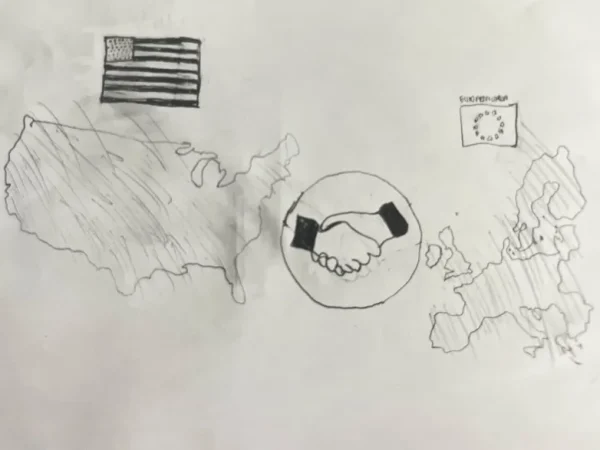
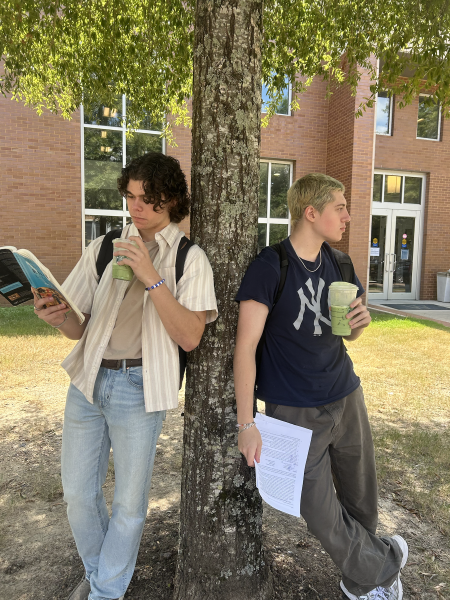
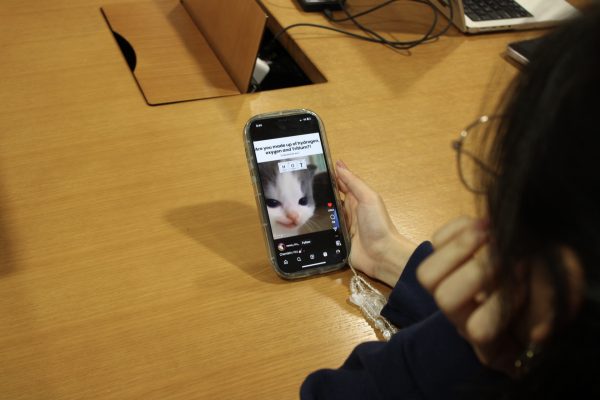
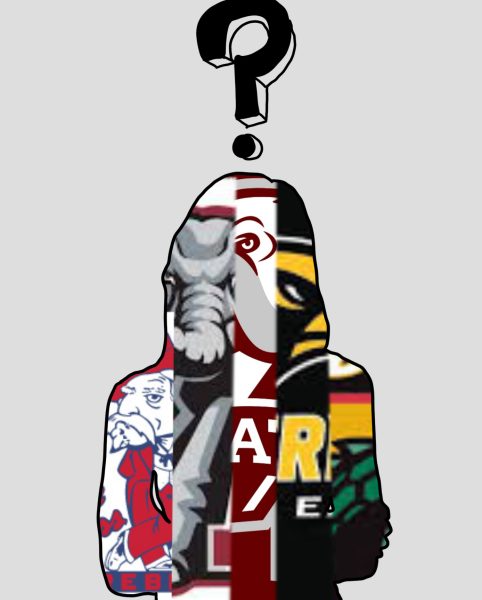
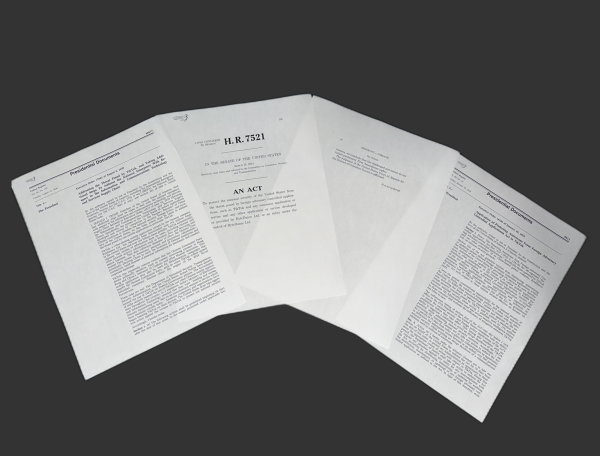
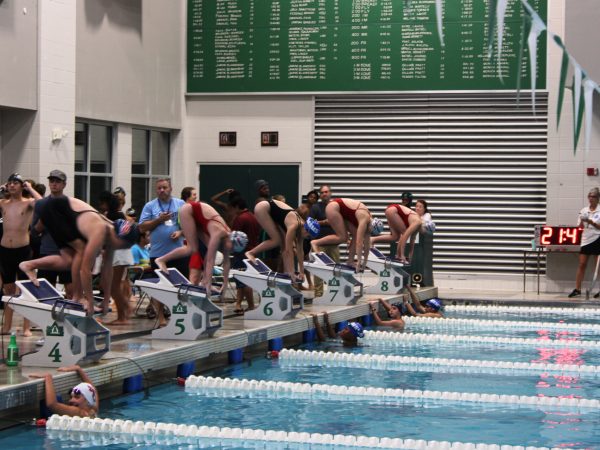
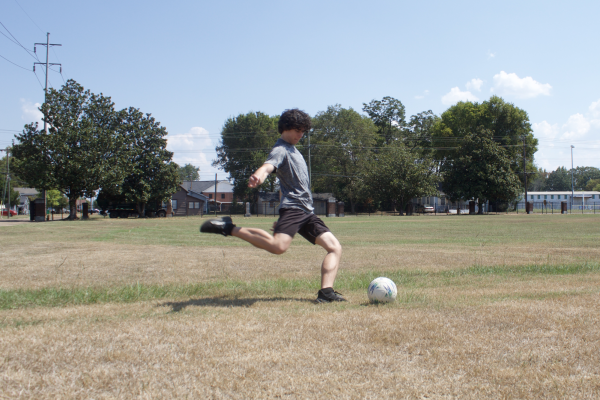
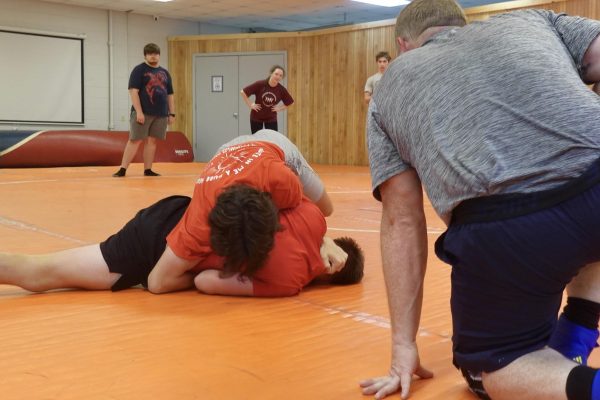
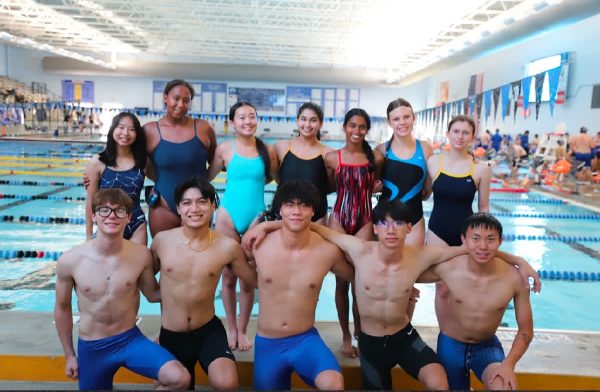
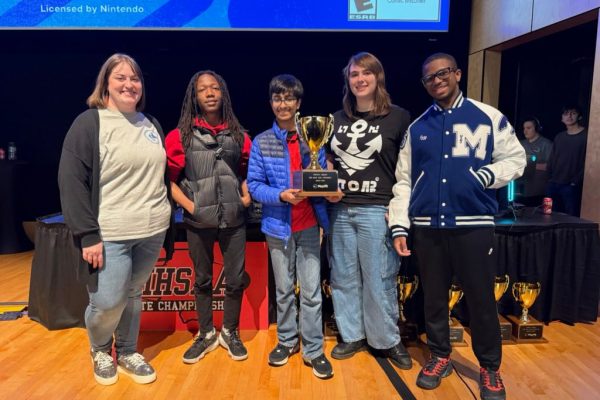
Average Joe • Sep 25, 2018 at 8:47 am
I’m not a fan of Kaepernick. I am going to try to stay on point and focus on your argument that if he wants to protest something he believes in then that is his right. It is not his right. If he wants to protest on his time that is perfectly fine but he is not. He is protesting at work, and the first amendment does not give you that right. If you worked at Chick-fil-A and at the start of the shift in front of a bunch of waiting customers you shout “Hail Satan” to protest the company’s Christian beliefs, you will be fired. Legally you will not be able to do anything about it because the first amendment does not protect you at work. My point is, he is at work wearing an NFL uniform representing the NFL and he does not have the right to freedom of speech.
However in this case, Kaepernick did keep his job for awhile because this was such a hot topic and the NFL was trying to play both sides of the fence because of the fear of backlash. In the end its cost them millions and if they could go back in time im sure they would end the protest quickly before it turned into what it did and they would have every right to do so.